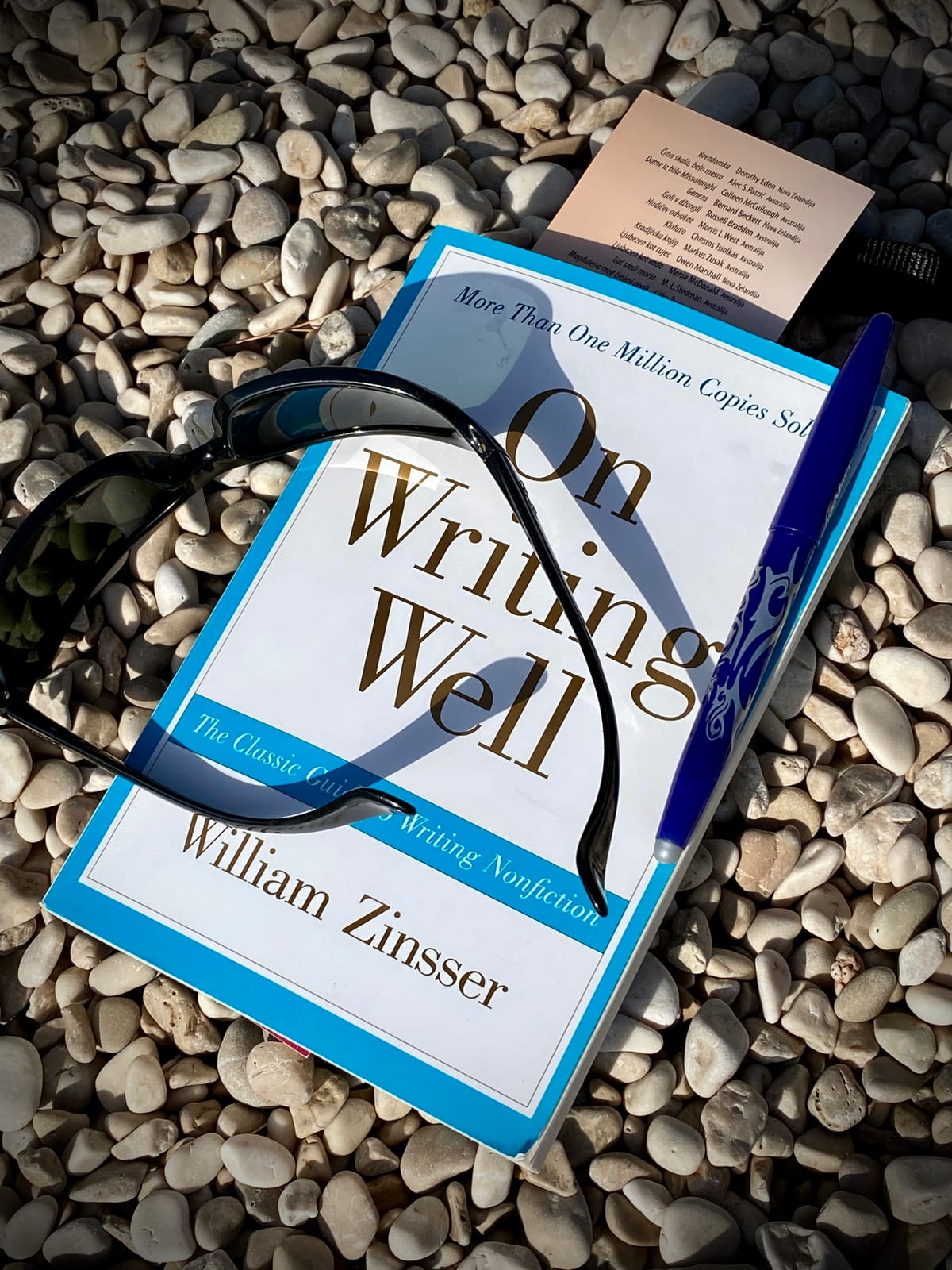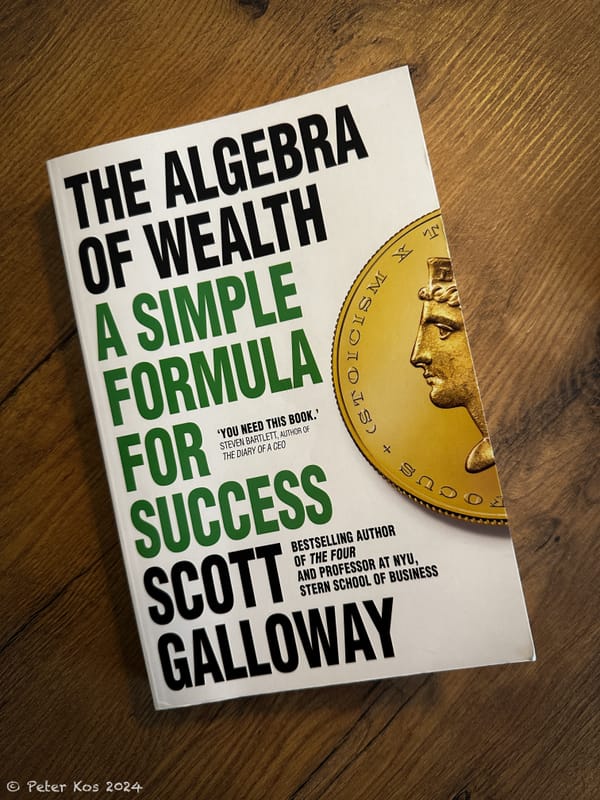On Writing Well by William Zinsser
I loved On Writing Well. Zinsser keeps you turning the pages even when writing about such a boring topic like grammar. He always seems to find a way to put little bits of fun into it, and he keeps surprising the reader.

It sounds weird, but I was surprised by what a great read this book by the late William Zinsser turned out to be. I should have expected that from the title, but I guess that another book on writing, You Can’t Make This Stuff Up, lowered my expectations.
I read it during my week off when I escaped to a small seaside cottage to work on my own book. I spent my days writing and reading, staying offline for most of the day. I only went online in the evenings in order to backup and sync my writing. That’s a super-productive way of going about creation, but I digress.
I loved On Writing Well. Zinsser keeps you turning the pages even when writing about such a boring topic like grammar. He always seems to find a way to put little bits of fun into it, and he keeps surprising the reader. The funniest read was this example from another author when trying to picture how to write about places:
A master of this feat of detection was the English author V. S. Pritchett, one of the best and most versatile of nonfiction writers. Consider what he squeezes out of a visit to Istanbul:
Istanbul has meant so much to the imagination that the reality shocks most travelers. We cannot get the sultans out of our minds. We half expect to find them still cross-legged and jeweled on their divans. We remember tales of the harem. The truth is that Istanbul has no glory except its situation. It is a city of steep, cobbled, noisy hills....
Mostly the shops sell cloth, clothes, stockings, shoes, the Greek traders rushing out, with cloth unrolled, at any potential customer, the Turks passively waiting. Porters shout; everyone shouts; you are butted by horses, knocked sideways by loads of bedding, and, through all this, you see one of the miraculous sights of Turkey—a demure youth carrying a brass tray suspended on three chains, and in the exact center of the tray a small glass of red tea. He never spills it; he maneuvers it through chaos to his boss, who is sitting on the doorstep of his shop.
One realizes there are two breeds in Turkey: those who carry and those who sit. No one sits quite so relaxedly, expertly, beatifically as a Turk; he sits with every inch of his body; his very face sits. He sits as if he inherited the art from generations of sultans in the palace above Seraglio Point. Nothing he likes better than to invite you to sit with him in his shop or in his office with half a dozen other sitters: a few polite inquiries about your age, your marriage, the sex of your children, the number of your relations, and where and how you live, and then, like the other sitters, you clear your throat with a hawk that surpasses anything heard in Lisbon, New York or Sheffield, and join the general silence.
I like the phrase “his very face sits”—just four short words, but they convey an idea so fanciful that they take us by surprise. They also tell us a great deal about Turks. I’ll never be able to visit Turkey again without noticing its sitters. With one quick insight Pritchett has caught a whole national trait. This is the essence of good writing about other countries. Distill the important from the immaterial.
If you’re interested in improving your writing skills, take the time to read it. It’s a fun nonfiction book.
I’ve made plenty of highlights and marginalia, and here’s just a short output:
The essence of writing is rewriting.
The secret to good writing is to strip every sentence to its cleanest components.
Clear thinking becomes clear writing.
Simplify, simplify.
Most nonfiction writers have a definitiveness complex — to make their article the last word — but there is no last word.
You learn to write by writing.
“Myself” is the refuge of idiots taught early that “me” is a dirty word.
On travel writing: One man’s romantic sunrise is another man’s hangover.
Give yourself permission to write about yourself, and have a good time doing it.
You are writing for yourself.
Writing is thinking on paper.






